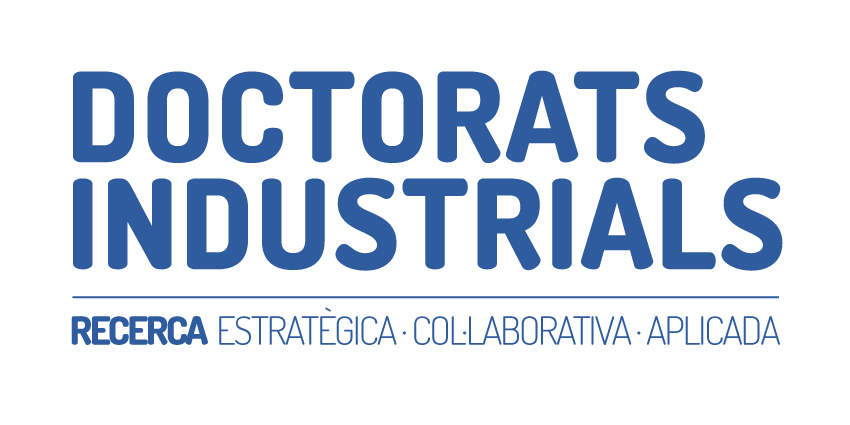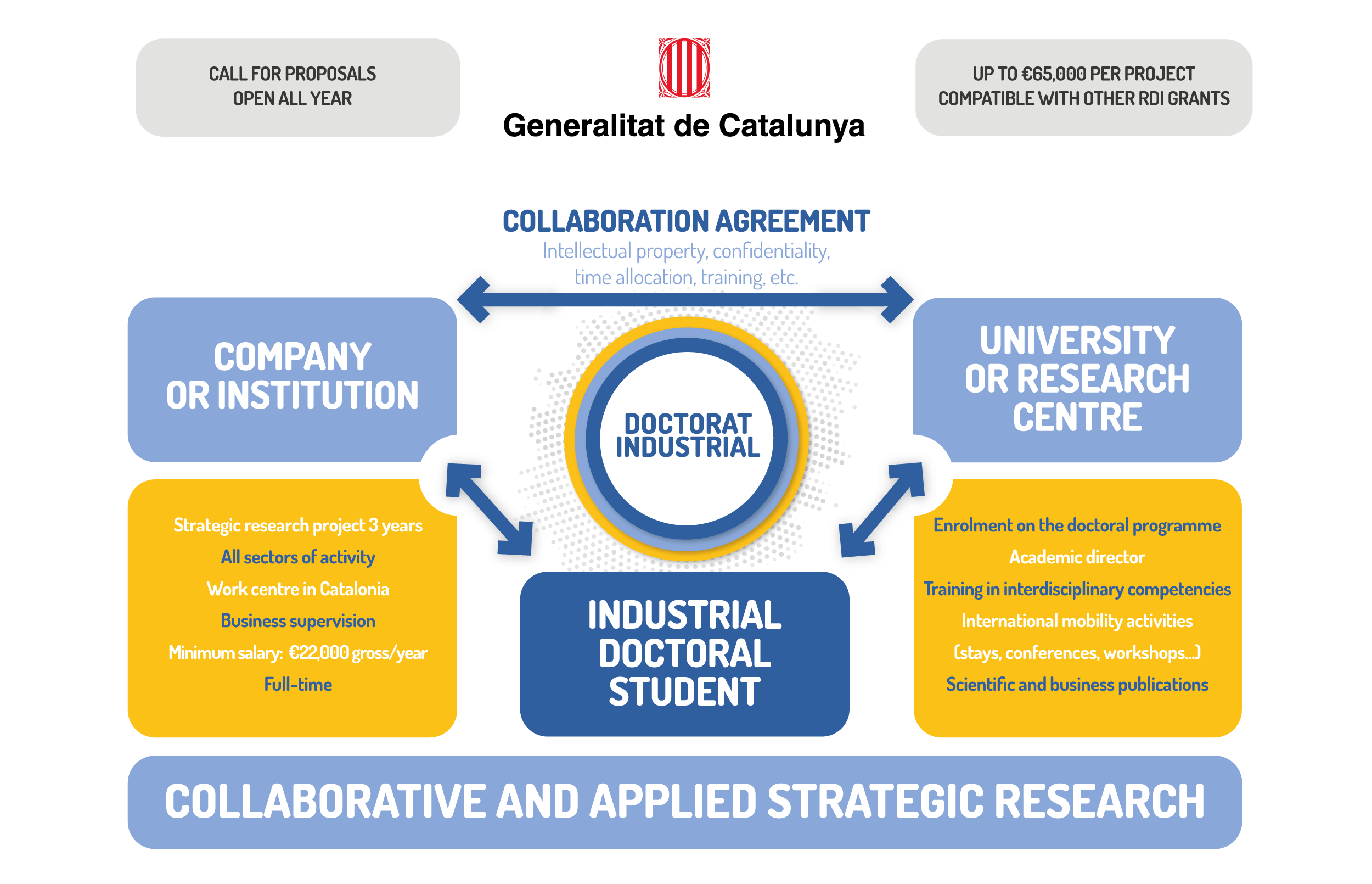The Industrial Doctorates Plan
What is an industrial doctorate project?
modalities
project
Requirements
and procedure
The Industrial Doctorates Plan
The Industrial Doctorates Plan is a public initiative of the Government of Catalonia, promoted at the end of 2012, in collaboration with the Catalan university and research system, closely related to doctoral training, knowledge transfer and the development of R+D+I projects in collaboration with the socioeconomic environment – companies and institutions. In this sense, during this decade, Industrial Doctorates have proactively promoted strategic, collaborative and applied research in Catalonia, and with a return to its society.
- Strategic, because the socio-economic environment, made up of companies and institutions, has a long-term vision and wants to contribute to the economic and social development of the country, facing a challenge that currently has no answer;
- Collaborative, because this strategic challenge of the socioeconomic environment is responded to through collaboration with a university or research center, making available its knowledge and the infrastructures of the academic environment;
- Applied, because it is a search close to the current or future needs of society, and that is why, ultimately, it has a return to the society that forms it.
The essential element of the Industrial Doctorates Plan is the industrial doctorate project: a strategic research project of a company or institution that will be developed in collaboration with a Catalan university or research centre, and which will become the subject of a doctoral thesis that will allow a doctoral student to acquire the training that will allow them to start the research career in a dual environment: business and academia. These projects aim to respond to the challenges that the socioeconomic fabric has identified as strategic for the coming years and that require the expert and specialized knowledge of the research groups to be able to face them with guarantees of success.
Industrial doctoral students, future doctors and industrial doctors, act as bridges of knowledge transfer, contributing to strengthen the relations between both environments, the socioeconomic and the academic. These people, thanks to the training and experience accumulated during the research and doctoral training project, are the ones who will become key – in other words, will become a necessary strategic asset – for the economic and social development of Catalonia.
Plan for everyone and for everyone
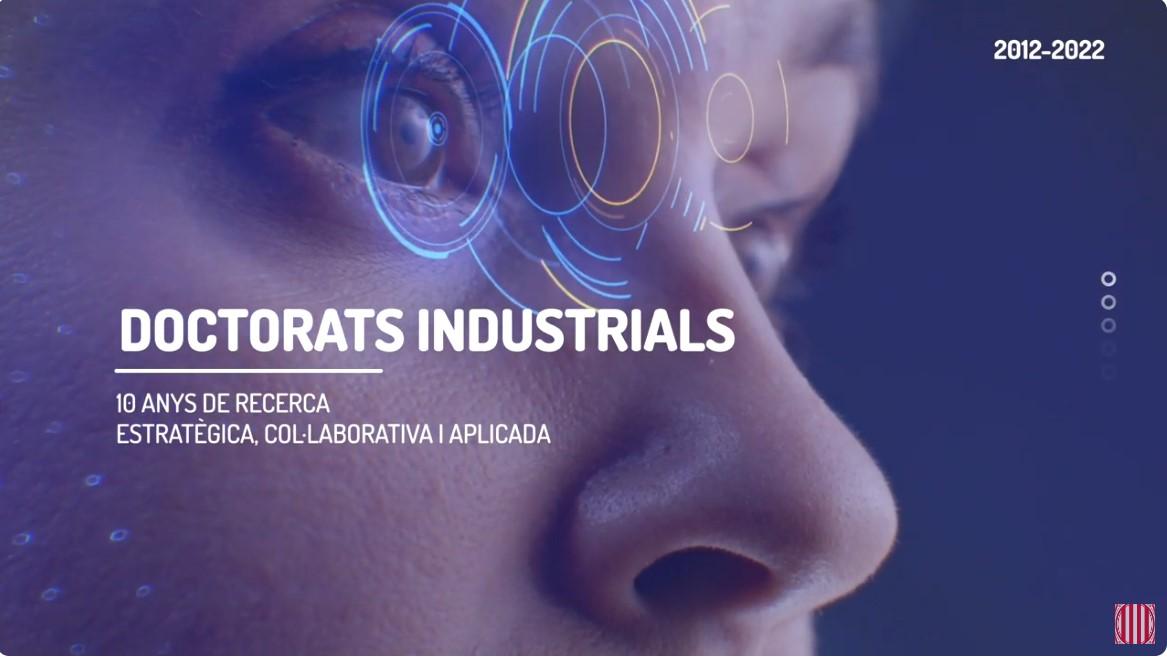
What is an industrial doctorate?
The essential element of the industrial doctorate process is the research project of the company or institution in which the doctoral student develops their research training, in collaboration with a university or research centre, and which is the subject of a doctoral thesis.
Industrial doctors act as bridges for knowledge transfer and contribute to strengthening relations between the industrial fabric of Catalonia and universities and research centres.
The objective of the Industrial Doctorates Plan is to contribute to the competitiveness and internationalization of Catalan industry, strengthen the instruments to capture the talent generated by the country and place future doctors in a position to develop R+D+I projects in a company.
Project modalities
co-financed grant (DI-COF)
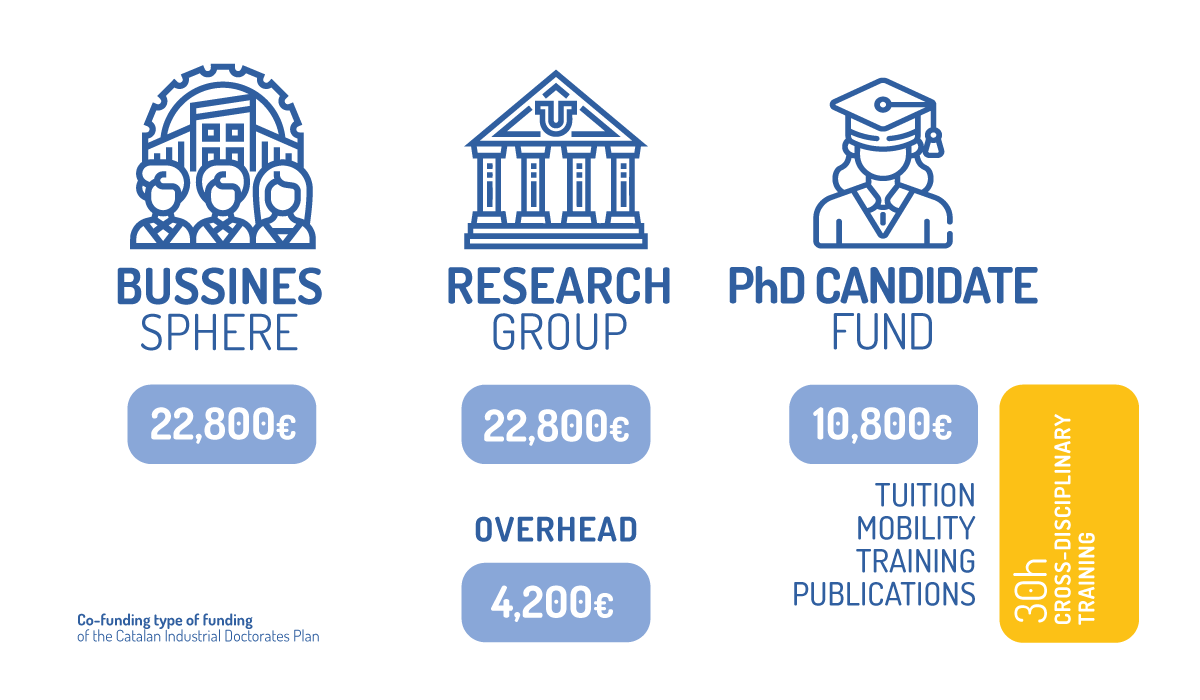
Specific Aid (DI-ESP)
The workplace of the business environment may or may not be located in Catalonia. It does not require exclusive dedication of the doctoral student to the research project.
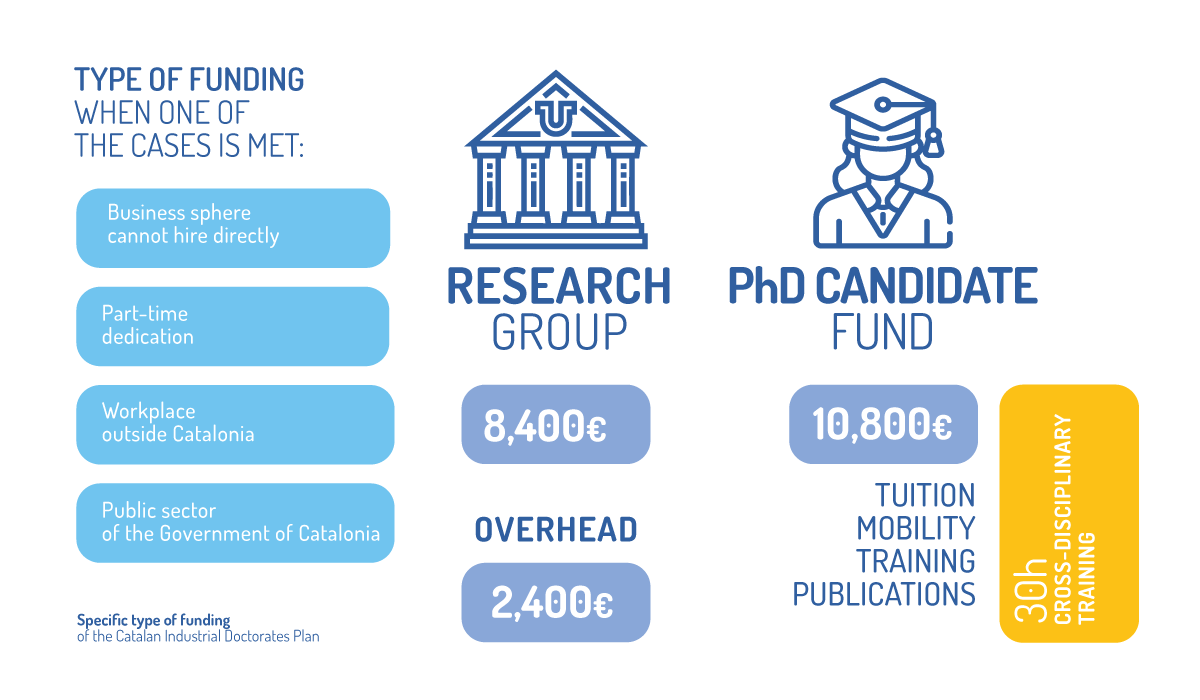
IN THE TWO MODALITIES:
The following are eligible:
- Private companies and public trading companies belonging to or linked to the public sector.
- Foundations and non-profit associations, entities belonging to the local, regional or central public sector, consortiums with majority public participation and city councils.
- Public sector entities of the Generalitat de Catalunya, in the form of specific aid.
The following are excluded:
- Research bodies and their dependent entities.
- Centres affiliated to universities.
Requirements
Companies and institutions
- The company/institution must designate a person responsible for the industrial doctorate project, who must have sufficient training and experience for the correct supervision of the doctoral student.
- The company or institution will employ the doctoral student, according to current labor legislation, with a minimum gross remuneration of 22,000 euros gross per year and the corresponding employer fees.
Academic environment (universities and research centres)
- The thesis supervisor must be a member of a research group recognized by the Generalitat de Catalunya, be an ICREA researcher or have obtained funding from the European Research Council (ERC).
Prospective students Industrial doctorate
- Meet the profile defined by the parties to the project (academic training, professional experience, knowledge of languages and other requirements).
- Weighted average mark of the studies that give access to the doctorate, according to current legislation, equal to or greater than 6.50.
procedure
Companies and institutions
- Download the project proposal form and fill in all the information related to the parties participating in the project, as well as the required profile of the candidate.
- Send it, both digitally signed and editable (without signatures), to the email address doctorats.industrials.recerca@gencat.cat
- The ID Plan team will publish it in the Projects section of the website for a minimum period of 5 working days for the receipt of applications from interested parties. Once this period has elapsed, the parties involved must request the closure of the period for receiving applications. It will be necessary for the parties to evaluate all the applications received.
- Apply for a grant for an industrial doctorate project at theVirtual Procedures Office of the Generalitat de Catalunya in one of the current periods of the active call. You must submit the standardised form that you will find in the procedure, following the steps indicated in the procedure, to which the following documentation must be attached:
- Collaboration agreement, which must include, as a minimum, the clauses defined in the terms and conditions of the grant.
- Selection report, in free format and containing the list of candidates interviewed, as well as the summary or selection criteria used for the final decision.
- Document of admission to the doctoral programme of the selected candidate.
- Personal academic certificates of the selected candidate from the university studies that give them access to the doctorate in accordance with current regulations.
- In the event of a favourable resolution of the application, accept the grant in accordance with the provisions of the terms and conditions of the grant (base 16).
CANDIDATES FOR ID PROJECTS
- Check out the proposals for industrial doctorate projects available on the website. You can filter them by university, company or institution and field of knowledge.
- Download the PDF document of the chosen industrial doctorate project proposal, fill in the last two pages with your data, profile and motivation letter and sign electronically.
- Submit your application by sending the electronically signed document to the email address doctorats.industrials.recerca@gencat.cat (it is not necessary to attach your CV or any other additional documentation).
- Once the application has been received, the Industrial Doctorates Plan team will send it to the person responsible for the project, the company/institution and the researcher for evaluation.
- The selection process, in any case, is carried out by the company/institution and the university or research centre. You will receive any communication or updates directly from the parties involved in the project.
